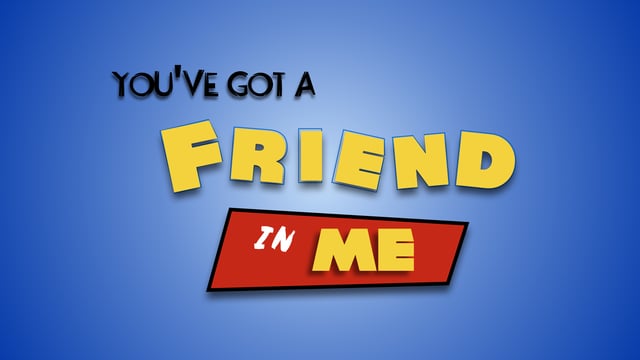Tag: cardio
Hiking in Anza Borrego was amazing specially on new years eve. Did goat trail hike which was very interesting saw so much quartz rocks beautiful the views were amazing and breathtaking. But you really need to be prepared for a hike like this you must have obviously water first aid kit just in case for those falls scrapes. You gotta wear the right hiking shoes/boots and the right clothing hats or something that will give you shade for the most part..
Amazing hiking trip.
How to Be Happy: 25 Habits to Add to Your Routine.

Regardless of your version of true happiness, living a happier, more satisfied life is within reach. A few tweaks to your regular habits can help you get there.
Habits matter. If you’ve ever tried breaking a bad habit, you know all too well how engrained they are.
Well, good habits are deeply engrained, too. Why not work on making positive habits part of your routine?
Here’s a look at some daily, monthly, and yearly habits to help kickstart your quest. Just remember that everyone’s version of happiness is a little different, and so is their path to achieving it.
If some of these habits create added stress or just don’t fit your lifestyle, ditch them. With a little time and practice, you’ll figure out what does and doesn’t work for you.
1.Smile
We smile because we’re happy, and smiling causes the brain to release dopamine, which makes us happier.
That doesn’t mean you have to go around with a fake smile plastered on your face all the time. But the next time you find yourself feeling low, crack a smile and see what happens. Or try starting each morning by smiling at yourself in the mirror.
2. Exercise
Exercise isn’t just for your body. Regular exercise can help to reduce stress, feelings of anxiety, and symptoms of depression while boosting self-esteem and happiness.
Even a small amount of physical activity can make a difference. You don’t have to train for a triathlon or scale a cliff — unless that’s what makes you happy, of course.
The trick is not to overexert. If you suddenly throw yourself into a strenuous routine, you’ll probably just end up frustrated (and sore).
Consider these exercise starters:
- Take a walk around the block every night after dinner.
- Sign up for a beginner’s class in yoga or tai chi.
- Start your day with 5 minutes of stretching. Here’s a set of stretches to get you started.
Remind yourself of any fun activities you once enjoyed, but that have fallen by the wayside. Or activities you always wanted to try, such as golf, bowling, or dancing.
3. Get plenty of sleep
No matter how much modern society steers us toward less sleep, we know that adequate sleep is vitalTrusted Source to good health, brain function, and emotional well-being.
Most adults need about 7 or 8 hours of sleep every night. If you find yourself fighting the urge to nap during the day or just generally feel like you’re in a fog, your body may be telling you it needs more rest.
Here are a few tips to help you build a better sleep routine:
- Write down how many hours of sleep you get each night and how rested you feel. After a week, you should have a better idea how you’re doing.
- Go to bed and wake up at the same time every day, including weekends.
- Reserve the hour before bed as quiet time. Take a bath, read, or do something relaxing. Avoid heavy eating and drinking.
- Keep your bedroom dark, cool, and quiet.
- Invest in some good bedding.
- If you have to take a nap, try to limit it to 20 minutes.
If you consistently have problems sleeping, talk to your doctor. You may have a sleep disorder requiring treatment.
4. Eat with mood in mind
You already know that food choices have an impact on your overall physical health. But some foods can also affect your state of mind.
For example:
- Carbohydrates release serotonin, a “feel good” hormone. Just keep simple carbs — foods high in sugar and starch — to a minimum, because that energy surge is short and you’ll crash. Complex carbs, such as vegetables, beans, and whole grains, are better.
- Lean meat, poultry, legumes, and dairy are high in protein. These foods release dopamine and norepinephrine, which boost energy and concentration.
- Highly processed or deep-fried foods tend to leave you feeling down. So will skipping meals.
Start by making one better food choice each day.
For example, swap a big, sweet breakfast pastry for some Greek yogurt with fruit. You’ll still satisfy your sweet tooth, and the protein will help you avoid a mid-morning energy crash. Try adding in a new food swap each week.
5. Be grateful
Simply being grateful can give your mood a big boost, among other benefits. For example, a recent two-part study found that practicing gratitude can have a significant impact on feelings of hope and happiness.
Start each day by acknowledging one thing you’re grateful for. You can do this while you’re brushing your teeth or just waiting for that snoozed alarm to go off.
As you go about your day, try to keep an eye out for pleasant things in your life. They can be big things, such as knowing that someone loves you or getting a well-deserved promotion.
But they can also be little things, such as a co-worker who offered you a cup of coffee or the neighbor who waved to you. Maybe even just the warmth of the sun on your skin.
With a little practice, you may even become more aware of all the positive things around you.
6. Give a compliment
Research shows that performing acts of kindness can help you feel more satisfied.
Giving a sincere compliment is a quick, easy way to brighten someone’s day while giving your own happiness a boost.
Catch the person’s eye and say it with a smile so they know you mean it. You might be surprised by how good it makes you feel.
If you want to offer someone a compliment on their physical appearance, make sure to do it in a respectful way. Here are some tips to get you started.
7. Breathe deeply
You’re tense, your shoulders are tight, and you feel as though you just might “lose it.” We all know that feeling.
Instinct may tell you to take a long, deep breath to calm yourself down.
Turns out, that instinct is a good one. According to Harvard Health, deep breathing exercises can help reduce stress.
The next time you feel stressed or at your wit’s end, work through these steps:
- Close your eyes. Try to envision a happy memory or beautiful place.
- Take a slow, deep breath in through your nose.
- Slowly breathe out through your mouth or nose.
- Repeat this process several times, until you start to feel yourself calm down.
If you’re having a hard time taking slow, deliberate breaths, try counting to 5 in your head with each inhale and exhale.
8. Acknowledge the unhappy moments
A positive attitude is generally a good thing, but bad things happen to everyone. It’s just part of life.
If you get some bad news, make a mistake, or just feel like you’re in a funk, don’t try to pretend you’re happy.
Acknowledge the feeling of unhappiness, letting yourself experience it for a moment. Then, shift your focus toward what made you feel this way and what it might take to recover.
Would a deep breathing exercise help? A long walk outside? Talking it over with someone?
Let the moment pass and take care of yourself. Remember, no one’s happy all the time.
9. Keep a journal
A journal is a good way to organize your thoughts, analyze your feelings, and make plans. And you don’t have to be a literary genius or write volumes to benefit.
It can be as simple as jotting down a few thoughts before you go to bed. If putting certain things in writing makes you nervous, you can always shred it when you’ve finished. It’s the process that counts.
Not sure what to do with all the feelings that end up on the page? Our guide to organizing your feelings can help.
10. Face stress head-on
Life is full of stressors, and it’s impossible to avoid all of them.
There’s no need to. Stanford psychologist Kelly McGonigal says that stress isn’t always harmful, and we can even change our attitudes about stress. Learn more about the upside of stress.
For those stressors you can’t avoid, remind yourself that everyone has stress — there’s no reason to think it’s all on you. And chances are, you’re stronger than you think you are.
Instead of letting yourself get overwhelmed, try to tackle the stressor head-on. This might mean initiating an uncomfortable conversation or putting in some extra work, but the sooner you tackle it, the sooner the pit in your stomach will start to shrink.
11. Declutter
Decluttering sounds like a big project, but setting aside just 20 minutes a week can have a big impact.
What can you do in 20 minutes? Lots.
Set a timer on your phone and take 15 minutes to tidy up a specific area of one room — say, your closet or that out-of-control junk drawer. Put everything in its place and toss or give away any extra clutter that’s not serving you anymore.
Keep a designated box for giveaways to make things a little easier (and avoid creating more clutter).
Use the remaining 5 minutes to do a quick walk through your living space, putting away whatever stray items end up in your path.
You can do this trick once a week, once a day, or anytime you feel like your space is getting out of control.
12. See friends

Humans are social beings, and having close friends can make us happier.
Who do you miss? Reach out to them. Make a date to get together or simply have a long phone chat.
In adulthood, it can feel next to impossible to make new friends. But it’s not about how many friends you have. It’s about having meaningful relationships — even if it’s just with one or two people.
Try getting involved in a local volunteer group or taking a class. Both can help to connect you with like-minded people in your area. And chances are, they’re looking for friends, too.
Companionship doesn’t have to be limited to other humans. Pets can offer similar benefits, according to multiple studies.
Love animals but can’t have a pet? Consider volunteering at a local animal shelter to make some new friends — both human and animal.
13. Plan your week
Feel like you’re flailing about? Try sitting down at the end of every week and making a basic list for the following week.
Even if you don’t stick to the plan, blocking out time where you can do laundry, go grocery shopping, or tackle projects at work can help to quiet your mind.
You can get a fancy planner, but even a sticky note on your computer or piece of scrap paper in your pocket can do the job.
14. Ditch your phone
Unplug. Really.
Turn off all the electronics and put those ear buds away for at least one hour once a week. They’ll still be there for you later. If you still want them, that is.
If you haven’t unplugged in a while, you might be surprised at the difference it makes. Let your mind wander free for a change. Read. Meditate. Take a walk and pay attention to your surroundings. Be sociable. Or be alone. Just be.
Sound too daunting? Try doing a shorter amount of time several times a week.
15. Get into nature
Spending 30 minutes or more a week in green spaces can help lower blood pressure and depression, according to a 2016 studyTrusted Source.
Your green space could be anything from your neighborhood park, your own backyard, or a rooftop garden — anywhere you can appreciate some nature and fresh air.
Better yet, add some outdoor exercise into the mix for extra benefit.
16. Explore meditation
There are many methods of meditation to explore. They can involve movement, focus, spirituality, or a combination of all three.
Meditation doesn’t have to be complicated. It can be as simple as sitting quietly with your own thoughts for 5 minutes. Even the deep breathing exercises mentioned earlier can serve as a form of meditation.
17. Consider therapy
We’re certainly happier when we learn how to cope with obstacles. When you’re faced with a problem, think about what got you through something similar in the past. Would it work here? What else can you try?
If you feel like you’re hitting a brick wall, consider speaking with a therapist on a weekly basis. You don’t need to have a diagnosed mental health condition or overwhelming crisis to seek therapy.
Therapists are trained to help people improve coping skills. Plus, there’s no obligation to continue once you start.
Even just a few sessions can help you add some new goodies to your emotional toolbox.
Worried about the cost? Here’s how to afford therapy on any budget.
18. Find a self-care ritual
It’s easy to neglect self-care in a fast-paced world. But your body carries your thoughts, passions, and spirit through this world, doesn’t it deserve a little TLC?
Maybe it’s unwinding your workweek with a long, hot bath. Or adopting a skin care routine that makes you feel indulgent. Or simply setting aside a night to put on your softest jammies and watch a movie from start to finish.
Whatever it is, make time for it. Put it in your planner if you must, but do it.
19. Give back
If you find that giving daily compliments provides a needed boost to your mood, considering making a monthly routine of giving back on a larger scale.
Maybe that’s helping out at a food bank on the third weekend of every month, or offering to watch your friend’s kids one night per month.
20. Take yourself out

No one to go out with? Well, what rule says you can’t go out alone?
Go to your favorite restaurant, take in a movie, or go on that trip you’ve always dreamed of.
Even if you’re a social butterfly, spending some deliberate time alone can help you reconnect with the activities that truly make you happy.
21. Create a thought list
You arrive for an appointment with 10 minutes to spare. What do you do with that time? Pick up your cell phone to scroll through social media? Worry about the busy week you have ahead of you?
Take control of your thoughts during these brief windows of time.
At the start of each month, make a short list of happy memories or things you’re looking forward to on a small piece of paper or on your phone.
When you find yourself waiting for a ride, standing in line at the grocery store, or just with a few minutes to kill, break out the list. You can even use it when you’re just generally feeling down and need to change up your thoughts.
22. Take time to reflect
The start of a new year is a good time to stop and take inventory of your life. Set aside some time to catch up with yourself the way you would with an old friend:
- How are you doing?
- What have you been up to?
- Are you happier than you were a year ago?
But try to avoid the pitfall of judging yourself too harshly for your answers. You’ve made it to another year, and that’s plenty.
If you find that your mood hasn’t improved much over the last year, consider making an appointment with your doctor or talking to a therapist. You might be dealing with depression or even an underlying physical condition that’s impacting your mood.
23. Reevaluate your goals
People change, so think about where you’re heading and consider if that’s still where you want to go. There’s no shame in changing your game.
Let go of any goals that no longer serve you, even if they sound nice on paper.
24. Take care of your body

You hear it all the time, including several times in this article, but your physical and mental health are closely intertwined.
As you build habits to improve your happiness, make sure to follow up with routine appointments to take care your body:
- see your primary care physician for an annual physical
- take care of any chronic health conditions and see specialists as recommended
- see your dentist for an oral exam and follow up as recommended
- get your vision checked
25. Let go of grudges

This is often easier said than done. But you don’t have to do it for the other person.
Sometimes, offering forgiveness or dropping a grudge is more about self-care than compassion for others.
Take stock of your relationships with others. Are you harboring any resentment or ill will toward someone? If so, consider reaching out to them in an effort to bury the hatchet.
This doesn’t have to be a reconciliation. You may just need to end the relationship and move on.
If reaching out isn’t an option, try getting your feelings out in a letter. You don’t even have to send it to them. Just getting your feelings out of your mind and into the world can be freeing.
Stuck in a rut!!
Hello everyone have you ever felt stuck in a rut where you just try or do anything and everything to get out of it and it just does not seem posssible? weather it be spiritual, financially or just having a better way of life for you or your immediate family. in those moments that you feel hopeless and almost like you have your hands tied behind your back or perhaps mental fog has set in your mind or way of thinking.
most of the time is that we are trying way to hard to accoplish those goals or task at hand. but we have to realised that we must take a step back and relax take a breather let our minds take a mental break in the process becuase you will bet burned out if not.
Here are afew things that you can do to give your mind a break.
- Listen to soothing music or sounds that stimulate your brain into relaxing.

2. Go out for a walk weather it be with friends just around the block maybe to a park were they might have a track field. Going to the beach and taking in the sounds of the waves and the sounds of the seagulls and just the ambient noise that is soothing and calming to the soul..

3. Going hiking enjoying the great outdoors sothing that will lift your spirits and will give you a sense of hope a sense of accomplishment.

4. Get together with friends that will make you happy and will give you hope that will encourage you to accomplish whatever itr is that you are trying to do. friends that are in the same mental level as you or higher sos that your thincking or your brainstorming gerts challenged and find results to issues that you might not be capable at all by yourself.

5. Staying in good health is possibly the biggest challenges amongs everyone. We have so many temptations as far as foods this is were our will really gets tested. we must make those choices now because in the long run that will catch up with us and we will definitely pay for it..

Please leave a comment below i would love to hear your thoughts and opinions.
The 5 Essentials You Need for Happiness
Happiness is subjective; what makes one person happy won’t necessarily make another one feel the same. But even being subjective in defining our individual criteria for happiness, there are still some basic essentials we all need to live a happy life.

Health in 3 Forms
This is a universally accepted essential. Your health is the most important component of happiness. It isn’t just physical health that is required for happiness but mental and emotional as well. Without these three forms of health, your chances of happiness dwindle. You are surviving and not living. Keeping yourself healthy in all ways is essential. Make every effort to take care of yourself physically, mentally and emotionally. 
Money
Money is probably one of the most debated essentials for happiness. We have all heard, the repeated saying that money doesn’t buy you happiness. It’s usually said by the very people who seem to have made a very happy life for themselves by having a great deal of money!
You don’t have to be a billionaire to be happy, but a certain amount of money does help you to have a more positive outlook on life in general. It offers you a safety net. You don’t have to worry about not being able to meet your mortgage payments or losing your home, not having money to repair your car and not feeling desperate when a small financial crisis hits.
Certainly, having enough money to be able to take care of yourself and those you love is an added security.
Money itself isn’t evil, and it is an essential. It can buy you time to pursue goals and dreams, and there is also nothing wrong with living a certain lifestyle that adds to your happiness quotient.

Relationships
You don’t need 50 BFFs to make your life happy nor do you necessarily have to join all the online social networks. What you need is people in your life who care about you and vice-versa. People with whom you can laugh, cry, hug, touch, kiss and share life. Statistics have always shown the positive benefits of having healthy relationships in life whether it is with friends or in a romantic partnership. We can include our pets in this essential since they are companions whose love for us is unconditional.

Contentment at Work
Note the word contentment. You don’t have to love your job but you have to derive a certain level of satisfaction from what you do, and a feeling of enjoyment during most of the work-day. Will you have days of frustration? Absolutely! But on the whole your job should be more than just a paycheck to you.
If you are in a job that you truly hate, (and we have all had that experience at one time or another), make solid plans for leaving. Keep looking for the job you really want, be prepared for opportunity and stay as positive as you can. Find a ‘bit of heaven in your hell’ and know that this is temporary. Life changes, it only stagnates if you give up.

Love and Accept Yourself
Self-love gets a lot of bad press because it keeps getting confused with the word selfish. There’s a world of separation between the two words. Love and acceptance of self is a key essential for true happiness. If you are accepting of who you are, warts and all, you are on the road to a happy life. This doesn’t mean that you won’t want to make changes in your life, it simply means that you know who you are, know your strengths as well as your weaknesses, and want to do what will best suit you to live successfully and happily.
The right to happiness is a basic one. You deserve to be happy simply because you are alive. The idea of what constitutes a happy life, however, differs from person to person; we are, after all, individuals. But the five essentials of health, money, relationships, contentment at work and self acceptance form the basis for creating happiness for yourself.

Try putting them into practice and see what changes they bring to your life.
Migraines and fatigue may start in the gut, experts say

If you suffer from migraines, you know how debilitating the piercing pain, sensitivity to light and sound and nausea can be.
According to the Migraine Research Foundation, about 38 million people suffer from them and more than 4 million who get them on a daily basis.
What you may not realize and what your doctor probably isn’t telling you is that migraines may be linked to your gut health. More specifically, the cause of migraines can be caused by “gut hyper-permeability,” a condition often dubbed leaky gut syndrome.
“Migraines are the result of a perfect storm,” said Dr. Vincent M. Pedre, an integrative and functional medicine doctor in New York City and author of “Happy Gut: The Cleansing Program to Help You Lose Weight, Gain Energy, and Eliminate Pain.”
Dehydration, not sleeping well, blood sugar fluctuations, artificial sweeteners, even a glass of wine can cause migraines. For women, hormonal shifts at the beginning of their menstrual cycles can be the culprit. For men, , an age-related testosterone deficiency known as “andropause” can trigger an incident.
Yet experts agree there are also inflammatory factors at play which can lead to gut hyperpermeability.
Leaky gut is activated by zonulin, a compound that our bodies produce to open up the tight junctions or the cells that line the inside of the intestines to let nutrients through.
When those tight junctions open up too much and allow undigested food particles and pathogens to get through, it elicits an immune response that can cause migraines.
Frequent use of antibiotics, an imbalance of good and bad bacteria, an overgrowth of yeast and stress and food sensitivities can all increase the hyperpermeability of the gut.
Up to a third of people with leaky gut may not even experience GI issues, a common symptom of leaky gut syndrome, Pedre said.
What’s more, conventional NSAID pain killers like ibuprofen also increase intestinal permeability within 24 hours of taking them and also when they’re taken long term, according to a review in the Journal of Gastroenterology.
Stress, in particular, affects the production of gastric enzymes, which aid digestion. If you’re not sufficiently breaking down proteins and your gut is hyperpermeable, your immune system is exposed to partially digested proteins that lead to an immune response.
Foreign proteins can also make their way into the bloodstream because of your own unique genetic predisposition.
“Your immune system is essentially going to be attacked by those foreign proteins and your tissues could look similar to those proteins,” said Shawn Stevenson, a nutritionist in St. Louis, Mo. and bestselling author of “Sleep Smarter: 21 Essential Strategies To Sleep Your Way To A Better Body, Better Health and Bigger Success.”
The same immune response that causes migraines can also lead to fatigue, along with the auras that precede migraines by one or two days or after the migraine has passed, Pedre said.
Gluten can increase gut permeability
“Most people can eat bread and gluten for their lives and not have anything they know to be a problem but that it doesn’t mean it’s good for them,” Stevenson said.
Although food sensitivities can trigger migraines, gluten, in particular, can cause hyperpermeability of the gut whether you have celiac disease, are gluten sensitive, or not, Pedre said.
If you suspect you have leaky gut syndrome, here’s what you can do about it.
See your doctor.
Leaky gut is controversial and not typically validated by conventional medical doctors so you should try to see a functional medicine doctor, integrative physician or homeopath who can help to identify the underlying cause of your migraines.
Although there’s a test—the lactulose mannitol test—to screen for gut permeability, it’s not perfect. Instead, your doctor will probably run a test to look for food sensitivities.
“If a person comes back with a whole bunch of foods they are reactive too, we know that they have a leaky gut,” Pedre said.
Do an elimination diet.
“One very powerful way to lower our inflammation in the body is through the diet,” Pedre said.
Talk to your doctor about a four-week elimination diet which excludes common food triggers and includes anti-inflammatory foods. Then slowly re-introduce the trigger foods and pay close attention to your symptoms. Although gluten might be the culprit, it can be something as inconspicuous as cinnamon, Pedre said.
Drink plenty of water.
Hydrating and re-hydrating after a workout or on a hot summer day is key to ward off migraines. When you’re dehydrated, the tiny capillaries in the brain get smaller, which makes it painful for the blood to pass through and circulate around the brain, Stevenson said.
Try bone broth.
Bone broth is trendy and experts say drinking it can help restore the gut microbiome. Chia seeds and okra are good choices too.
Take supplements
Supplements such as aloe vera gel powder, L-glutamine, deglycyrrhizinated licorice (DGL), fish oil and curcumin can help.
Eat probiotic-rich foods.
Try adding foods rich in probiotics into your diet like sauerkraut, kimchi and kefir as well as prebiotic foods like Jerusalem artichokes, garlic and onion.
Reduce stress.
It’s one of the most difficult things to make room for in your life, but stress-reduction activities like yoga, meditation and spending time in nature are important to restore gut health and prevent migraines.
“If you only change your diet but you’re still living in this rushed, stressed out way, then you’re missing part of the picture,” Pedre said.
Is Your DIET causing Alzheimers?
An important new study released in London conclusively links diet and Alzheimer’s disease, providing even more evidence that you can protect your brain by watching what you eat.
At the recent Alzheimer Association’s International Conference in the U.K, researchers revealed that following either a heart-healthy Mediterranean diet or its close cousin, the MIND diet (see picture below), can reduce future cognitive impairment by up to 35 percent.
Although earlier studies had linked heart-healthy diets to better cognitive function, today’s study, by researchers at the University of California, San Francisco, is important for having the size (6,000 adults who participated in the Health and Retirement survey) and type of subjects (cognitively healthy at the start) to conclusively link diet and Alzheimer’s and “make the results quite generalizable to a broader group,” says lead researcher Claire McEvoy.
And while the two diets studied vary slightly — the main difference stems from MIND’s bigger emphasis on leafy green vegetables and its restriction on all fruit but berries — McEvoy says focusing on particular foods is not the point. “The diets as a whole seem to have the greatest benefit. Foods and nutrients seem to work together to provide the benefits.” As for how healthy choices like spinach and blueberry salads work their brain-saving magic, ideas vary. “It could be that they reduce inflammation, which has been strongly implicated with cognitive decline,” McEvoy says. Or, she adds, the diets’ power could be related to “the profound positive effect that a high-quality diet has on the vascular system,” which in turn affects brain health.
But while science shows that the diets work as a whole, the benefits of decisions like choosing whole grains over processed flour or cooking with olive oil aren’t all or nothing. The study’s results, says Maria Carrillo, chief science officer at the Alzheimer’s Association, show the positive effects of improving nutrition even a bit. “Of course, you get the biggest result if you follow the diet completely, but even little changes can have a significant impact.”
daily indulge™ MEAL REPLACEMENT
weight loss protein shake mix
A mouthwatering blend of body-beneficial ingredients that maximize delivery and absorption. Scientifically formulated to support your body’s nutritional needs.
Key Benefits
- Maximizes Protein Delivery & Absorption
- Increases Satiety – Helping You Feel Full Longer
- Promotes Digestive Health
- Less Calories & More Nutrition
SUGGESTED USE:
Add one scoop of Daily Indulge Shake Mix to 8 ounces of water or milk and mix until well blended for your breakfast and/or lunch.








You must be logged in to post a comment.